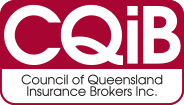What’s the Deal with Professional Indemnity Insurance?
- Oct 04, 2016
- 13 min read
It is commonly misunderstood that Professional Indemnity Insurance policies are all pretty much the same and provide similar coverage. This is just simply not the case, and without specialist advice, and a tailored solution, you could end up in hot water.
As a general rule, larger organisations understand their exposures and are at least conversant with policy differences. I think this is because managing risk is such a big part of their survival as a business. Bigger businesses have the scale to assign these tasks to specific staff. Maybe it’s the businesses that understand these things that are the ones that get big.
In any case, it’s often the smaller business that faces challenges in this area. The problem can be in knowing where to start. More often than not, businesses start by getting a few quotes only when they are required to show a Certificate of Cover in order to secure a contract. Invariably, the business owner will go with the cheapest quote and then forget about the policy until it comes to renewal.
…for the smaller business owner, expenses like insurance premiums can seem more like a personal cost rather than a legitimate expense of doing business..
I’m not being condescending here; it’s just that smaller businesses have to be busy getting new clients while maintaining existing ones, and some of the administrative functions become secondary to doing the work and getting paid. Also, for the smaller business owner, expenses like insurance premiums can seem more like a personal expense rather than a legitimate cost of doing business.
With a basic understanding of how these policies can vary and what to look out for, you would be in a better position to know which product and service is best for you. You would know the ins and outs of how this cover keeps you in business and even how to avoid some contractual pitfalls.
That being said, I’m writing this to give you an idea of the basics, to help you make an informed decision when purchasing Professional Indemnity insurance. This is by no means an exhaustive thesis on the matter, but I will provide you some important elements for consideration.
Policy Language
I believe the most important difference between Professional Indemnity insurance policies is the actual wording of the contract. Cover can be based on:
- A negligent act, error or omission wording;.
- An act, error or omission wording;.
- A breach of professional duty wording; or.
- A civil liability wording.
Following is a brief outline of what these points actually means
1. Negligent Act, Error or Omission
Professional Indemnity policies were originally based on the concept of negligence and designed to cover the costs incurred in defending and/or compensating a third party for breaching your duty of care as a professional. Claims do not always arise out of negligence, and actions brought against you based on other legal grounds would not be covered by the policy. Such claims could result from a breach of statutory duty, such as misleading or deceptive conduct, or breach of a contractual term, etc. Consequently a ‘negligent acts only’ clause provides narrow coverage compared to other available wordings.
2. Act, Error or Omission
A broader insuring clause would be one which responds to allegations of an act, error or omission in the performance of your professional services. This removes the negligence requirement and, mostly would respond to contractual liabilities, statutory breaches, and equitable breaches (e.g. breach of trust) in addition to liability based on negligence.
..It’s extremely important to have an experienced broker facilitate the process so that you have some assurance that you’re set up the right way..
3. Civil Liability
Civil liability wordings provide very similar cover to act, error or omission wordings. Both wordings provide broad coverage, however, the focus is different. Civil liability focuses on the nature of the liability (civil v criminal) whereas the ‘act, error or omission’ wording focuses on the actual conduct of the insured. If you have incurred a civil liability, chances are that you would have engaged in some acts, errors or omissions for which you are liable.
4. Breach of Professional Duty
A professional could be thought of as someone who possesses the necessary knowledge and skill to perform the work for which they are engaged.
Professional duty is that person’s duty of care owed to a client of third party in the performance of such work.
Whichever the policy type, civil liability or negligence, Professional Indemnity policies will only respond to claims arising in the course of or conduct of your professional services. The description of services are either stated in your insurance schedule or are a defined term in the policy. It’s extremely important to have an experienced broker facilitate the process so that you have some assurance that you’re set up the right way. One common reason for a claim to be declined is that the matter did not arise in “connection with the Insured’s Business”, as defined in the policy. It is extremely important to ensure the description accurately and adequately captures all the service you currently and will provide during the policy period. The Limit of Indemnity is the maximum amount the insurer will pay in respect of any one claim made against the insured and notified to the insurer during the period of insurance. A costs inclusive limit of indemnity includes both the legal costs and expenses incurred in defending a claim as well as any settlement amount. Conversely, a costs exclusive limit applies to the ultimate compensation amount only. Often insurers will include a limit on defence costs, for example, that they cannot exceed the limit of indemnity, however, a costs exclusive limit provides broader coverage.Claims made or claims made and notified
Professional Indemnity policies are offered on a claims made basis. This means that the policy only responds to claims first made against the organisation during the policy period, irrespective of when the act, error or omission giving rise to the claim was actually committed. In addition to this requirement, policies will compel the insured to report the claim within the policy period. This is a stringent condition, particularly where you are notified of a claim close to expiry. Failure to comply with the condition could result in a claim being denied or the insurer’s liability reduced. The definition of claim is a critical component of a Professional Indemnity policy as it determines; All policies respond when the claim is first made against the insured. However, the exact time of when it is ‘made’ is not always that simple. The two areas to look out for are: The sooner you can move from a “circumstance that might give rise to a claim” to an actual claim to which the policy responds the better. A written demand or notice seeking a legal remedy would provide the broadest definition of claim. Similarly, legal remedy language would respond when there has yet to be, or is no claim for damages. Each insurer’s definition varies so you need to be able to differentiate and find the version that works for you. This is another reason that you need advice from someone that knows what they’re doing. When I say “advice”, I don’t just mean getting 3 quotes from a broker, I mean talking to someone who knows what they’re talking about and can get to the heart of what matters in your business. It is imperative that you are aware of the policy definitions that decide whether you are covered and if you can claim, so that you can identify when a claim has been made against you. Now, this is not advice, nor does this article alone constitute anything that you can rely on to ensure that you have set yourself up the right way with your PI. I have barely scratch the surface of a very complex matter that has taken me decades to master I’ve highlighted some broad areas of difference in this complex field. Every policy is different and the headings and words used do not always carry the same meaning. A good commercial, broker can identify areas of risk in your business and advise you accordingly. PI can be the difference between your business surviving and a painful, costly alternative. The most comprehensive policy may not necessarily be the most expensive and, even if it is, the enhanced coverage may be worth the money. The simplest way to navigate this is to get quality advice. If you get the feeling that your adviser is only talking about cost, or if they do not seem to really understand your business, then it might be time to look further afield. If you feel that you need to dig deeper into this specialist area, please email us on tbib@tbib.com.au or call us on 07 3252 5254 and talk to one of our brokers.
Inclusive or Exclusive of Defence Costs
Claims Trigger




